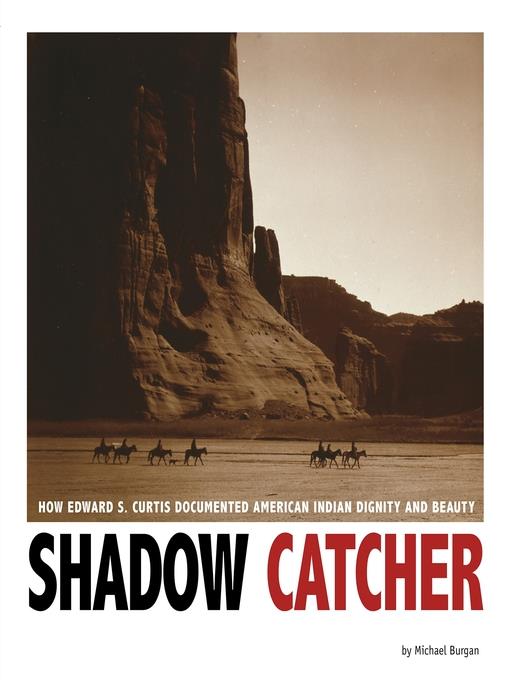
Shadow Catcher
How Edward S. Curtis Documented American Indian Dignity and Beauty
فرمت کتاب
ebook
تاریخ انتشار
2015
Lexile Score
1040
Reading Level
5-8
ATOS
7
Interest Level
4-8(MG)
نویسنده
Michael Burganناشر
Capstoneشابک
9780756552718
کتاب های مرتبط
- اطلاعات
- نقد و بررسی
- دیدگاه کاربران
نقد و بررسی

April 1, 2015
Gr 6 Up-These latest additions in this series are every bit as excellent as their predecessors. With The Golden Spike, Nardo explores the work of photographer Andrew J. Russell during the building of the transcontinental railroad. In addition to describing the mind-boggling obstacles faced by Russell and his team (toting equipment that was expensive, delicate, and cumbersome; the effects of the elements), Nardo frames the narrative within the wider story of Manifest Destiny, the destruction of nature, and the displacement of Native Americans. With Shadow Catcher, Burgan chronicles ethnologist and photographer Edward S. Curtis's commitment to chronicling the daily life of several Native American tribes for his massive book The North American Indian. Both books feature well-written and accessible text, but it is the stunning photography that will keep readers entranced. VERDICT Informative and downright gorgeous.
Copyright 2015 School Library Journal, LLC Used with permission.

June 1, 2015
Grades 4-7 This latest entry in the Captured History series shifts its focus from the power of a single photograph to the influence of a body of work. Edward S. Curtis was a self-taught photographer invested in the idea of the vanishing Indian. His opus was The North American Indian, a 20-volume photographic project published between 1907 and 1930, based on years of living with tribes and chronicling their culture. Curtis was a practitioner of pictorialism, a technique of creating photos that look more like paintings than images of reality, which has been a source of controversy for modern scholars. Burgan fairly represents both sides of the debate, though it is clear he considers Curtis' photographs to have done more good than harm. The book is clearly written, well researched (including source notes and an extensive bibliography), and uses many of Curtis' photos, showing the scope of his work. Curtis said that he wanted his photographs to make Native Americans live forever, and this book puts forward the case that he succeeded.(Reprinted with permission of Booklist, copyright 2015, American Library Association.)

























دیدگاه کاربران